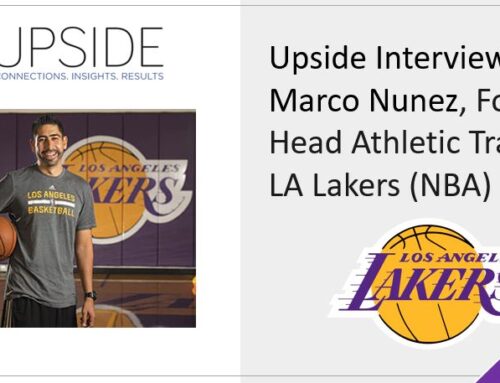
Upside VC profile of the month:
Investment platform name: Stadia Ventures
Headquartered: St. Louis, MO
Founded: 2015
Managing Partners: Joe Pimmel, Brandon Janosky, Alex Chalmers
Website: https://www.stadiaventures.com
Sectors: Sports + Esports
VC type: Pre Series A investor and accelerator.
Acceleration duration: 14 weeks
Typical investment range: $50k-$250k
Total number of investments: 60 core investments to date.
Total number of exits: 7
- Gameface AI from Fall 2020 to Slinger Bag;
- Block Six Analytics from Fall 2016 to Excel Partners;
- INFCLR from Fall 2018 to Teamworks;
- Gamerz Arena from Spring 2018 to Alpha Esports;
- Upgraded from Spring 2017 to Ticketmaster;
- Fishidy from Fall 2015 to FLIR Systems;
- Winning Identity from Fall 2015 to Blast Motion
Stadia Ventures is a sports- and esports-focused venture firm with a sports business accelerator. They are based out of St. Louis, MO, with additional presences in Dallas, TX; The Hague, Netherlands and Denver, CO.
Twice a year, they search for 4-6 of the best sports/esports startups in the world and invest $100k cash into each company. Subsequently, the Stadia team then guides the founders through an immersive 14-week business development bootcamp surrounded by an array of business mentors, speakers and impactful introductions from their targeted industries segments.
After six years, they are currently executing their 13th cohort and have over 60 companies in their portfolio. Their portfolio companies have gone on to raise over $300M and their funds have realized 7 exits from the portfolio to date.
This week, we interviewed Joe Pimmel, Managing Partner at Stadia Ventures, to discuss his investment thesis, his accelerator, his area of focus, and what he is typically looking for when investing in startups.
Q1. What are the areas of investments that your group is focusing on? We typically invest in companies that are disrupting the underlying infrastructure of the sports or esports industries, with a focus on areas where our network and mentor pool can have an outsized impact on the trajectory of the startup. While not inclusive, this includes areas such as fan engagement/experience, athletic performance/training, data analytics/monetization and content/media. We’ve also made niche investments in areas where our network could add outsized value, such as outdoor recreation or airport video gaming lounges.
Q2. Why sports? We get this question a lot, actually, because the average person associates the term “investment” in sports primarily with the purchase and running of sports franchises. The first reason is that sports and esports are highly strategic ecosystems in terms of investment and acquisition. It can be an efficient market in which to scale an impactful new product because many customers are homogenous and seek to ensure they’re “up to speed” with competitive leagues, franchises or development programs in terms of innovation. The second reason is that sports and esports are remarkably adept at providing initial entry points for many technologies that can often be applied in other adjacent vertical markets later in a startup’s journey. Examples of these adjacent markets include entertainment, music, military/defense, wellness and health/med tech to name a few. Like any vertical industry, the same rules apply – fail fast and learn a ton. Our goal is to find great companies that can solve major pain points in the sports/esports world while also having strong applicability in other industries as they evolve.
Q3. What are you typically looking for when investing in startups? Typically, we are looking for the company to have defined the initial product/market fit. This is important for our team because a core tenet of our investment thesis is to be able to help position the company for growth within our global network of potential investors, customers and channel partners. If the company does not yet have a working product that has been validated in the marketplace, that makes that feedback/vetting process more difficult to achieve. The other main characteristic, which is a very predictable answer, is the quality and character of the founding team. We generally prefer teams with multiple founders though we have had instances where we invested in single founder companies. But the most important test is whether we’re comfortable with the founders’ ability to be mentored, to learn and to be open-minded when we begin that feedback loop in the Stadia global network. Our team is constantly learning and evolving; we want our founders to exhibit that same passion for continuous improvement as well.
Q4. Can you tell us about your sports accelerator? Why should any startups apply to your accelerator? Our accelerator is a 14 week program that meets every other week, currently on a virtual basis. The core programming is contained in those seven sessions which generally last from around lunch time on Wednesday to lunch time on Friday, with programming dedicated to intimate guest speaker sessions from executives in the sports/esports industry; mentor office hours with subject matter experts and potential customers; and education/insight sessions from our group of cohort partners. Each session also reserves specific times set aside for the cohort companies to meet as a group to share wins, losses or challenges they’re facing, which helps build incredible relationships and network growth.
The final piece is that each cohort company receives a curated, dedicated mentor team of 4-7 individuals that have been hand-picked for a specific reason. Those mentor teams meet on a weekly basis, each Friday morning, for roughly 1-2 hours.
If it isn’t obvious already, the reason that startups apply to Stadia and have success in the platform is that we literally surround them with industry experts, potential customers and world-class business mentors that give our portfolio companies an unfair advantage relative to their peers in the same space. We can often shrink a company’s path to market and revenue scale dramatically compared to what they would achieve on their own. The formula has worked for the past 6 years and we’re only getting started.
Q5. What do you think is the state of the sports tech industry after a year with COVID-19? It has been truly fascinating to watch the dichotomy between areas of the sports industry that have flourished contrasted with those that have been put on “pause” for the moment. In addition to that, the early-stage investment world has been changed dramatically at the same time, with both 2020 and 2021 setting records for volume of dollars invested into venture capital as an asset class. Generally speaking, our portfolio companies are healthy, which is something we wouldn’t have predicted at the outset of the pandemic; a number of our companies in areas such as esports, athlete monetization, remote fan engagement and virtual coaching have excelled during the past 18 months. The bottom line is that teams, leagues and federations have pushed the accelerator down on any efforts to learn more about the behaviors and preferences of their fan bases, no matter where they’re located, as the pursuit of dollars being spent by fans as well as corporate sponsors has become more and more competitive. Technology is helping to fill that knowledge gap for industry players as they seek to maintain and grow their “share” of the wallets of fans.
Q6. What advice would you give to any startups looking to raise money right now? It is a great time to be a startup raising capital, especially when you consider some of the figures that are being published. We have never seen a time where more dollars are being invested into the venture capital asset class; many of those dollars are being invested in later stage growth companies, but in rising tides, all boats are lifted and even the dollars invested at the Seed stage have increased ~40% since 2020. My advice would be the same thing we tell our portfolio companies: capital is great, but make sure you’re reading the fine print and while getting that high valuation on your next round of investment is appealing, make sure you have a reasonable plan for supporting that valuation as you look to future rounds of funding. The last thing you want is to take money on a high valuation today and then find yourself growing more slowly than you’d like, which will make the likelihood of realizing a “down” round of funding that much higher.
Q7. What advice would you give to anyone interested in starting a career in the sports investment world? Go work for a tech startup for a bit and learn what it takes to work in that environment. Understand just how gritty it is to build and run a company with limited resources. The key here is acquiring empathy, as much as you can – coming up with ideas is great, but the execution of a small business is real life and incredibly difficult. Once you’ve seen how that is done, you’ll be much more likely to be able to identify the right recipe of founders + ideas + team when you see it as an investor. Plus, you’ll learn a ton!













You must be logged in to post a comment.